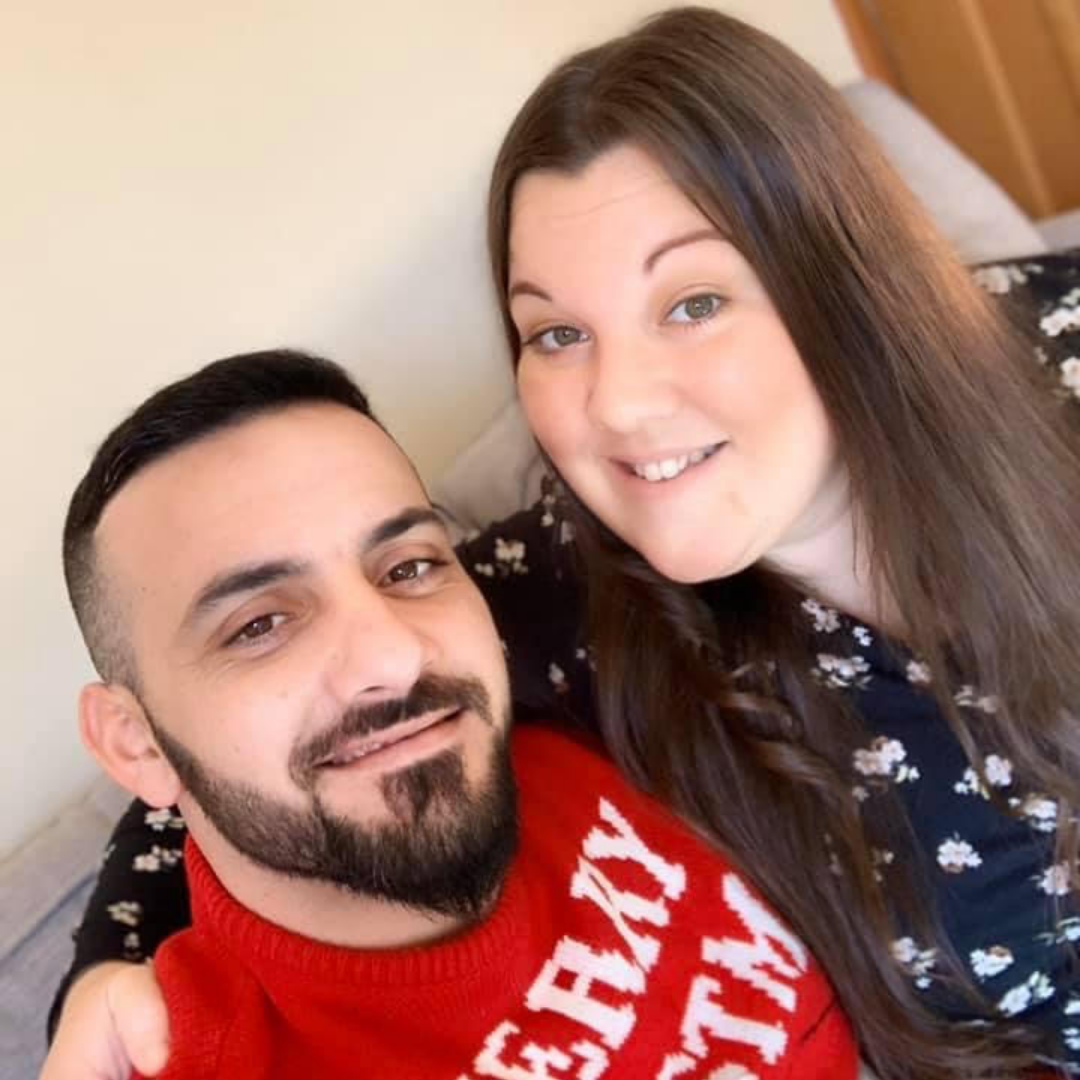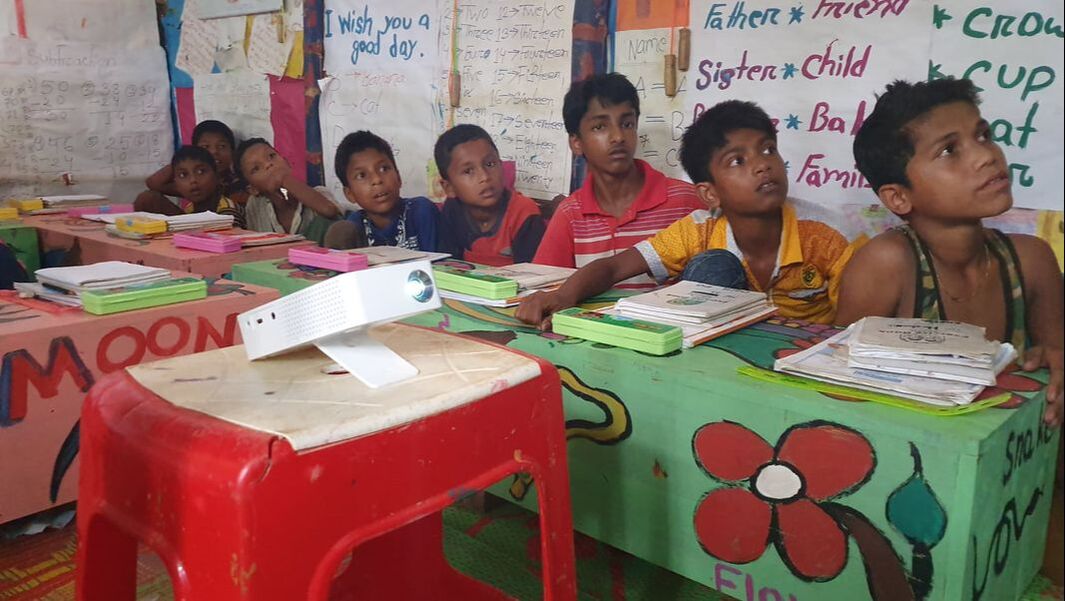Laura’s husband, Raalf is Syrian and they have two small children together. Raalf had to flee the country in 2012 during the civil war (which continues today, over 10 years on). He met Laura in Cyprus where he travelled from Syria to seek refuge and where Laura was working as a travel rep. They now live in the UK with their boys (aged 1 and 6). Laura said that she wants to take the stigma away from refugees in this country and wish it didn’t exist. She says that so many people are unsympathetic and don’t understand that whilst they are thankful for the relative safety of the UK, the majority of Syrian refugees would rather be living back home in Syria. She says that before the war, it was a land full of flowers, olives and grapes, and Raalf had a large family home. Laura explains how the the news can never portray what it’s really like being born in a country that turns on their own people, who are forced to flee for safety, like her husband and his family. She talks about how hard it is to be an immigrant from a war torn country like Syria and how simple things become difficult; they needed a lawyer to sort through complications with their marriage for example. Laura told us how out of a class of 30 in Raalf’s school, only four of them are still alive today. Raalf’s family have now sought refuge across the UK and Europe, but hasn’t seen many of them in years. Raalf’s Aunty walked all the way to the UK to seek refuge. His Dad stayed behind in Syria and they constantly worry about him. On Christmas Day a few years ago, Raalf’s local village was bombed, where his father still lives. They had to wait until the following day when communication was possible to see if he was alive or not. Thankfully he survived. As a couple, Laura and Raalf celebrate both their faiths (Laura is Christian and Raalf is Muslim). Laura says their cultural differences are always discussed and communicated. She says that if they can live side-by-side in one household with differing cultures and religions, why can’t we mirror this in the outside world? She can’t understand why people can’t act or treat refugees without prejudice and be happy to live side by side with people regardless of where they come from. Laura says if more people can be a voice to speak out on behalf of refugees, and remove the stigma, people would be more tolerant and learn to live side by side with each other. She wants to support Children on the Edge to help make small changes around the world. Small changes which feed into the bigger picture she says. Children on the Edge work to support refugees and displaced people in Lebanon, Uganda and Bangladesh and Myanmar, who have fled war, conflict and violence. We currently support over 12,000 refugee children to realise their rights.
We find innovative ways to enable access to education, working alongside refugee communities to find the best possible solutions. We create safe spaces where refugee children can learn, play and recover from the trauma they have experienced. We train refugee teachers so that children can learn in their own language or dialect and be with familiar, trusted adults that understand them. Our classrooms are colourful and fun environments, where children are safe and can learn to express themselves. You can support our work with refugees by donating today. Support usComments are closed.
|
RECEIVE OUR EMAILSBlog Categories
All
Archives
July 2024
|
|
JOIN US ON SOCIAL MEDIA
|
Annual Report | Contact Us | Jobs | Media Centre | Resources | Shop
Accessibility & Policies: Accessibility | Equity, Diversity & Inclusion Policy | Complaints| Privacy Policy | Safeguarding
Accessibility & Policies: Accessibility | Equity, Diversity & Inclusion Policy | Complaints| Privacy Policy | Safeguarding
Children on the Edge, 5 The Victoria, 25 St Pancras, Chichester, West Sussex, PO19 7LT, UK | 01243 538530 | [email protected]




 Give monthly
Give monthly Fundraise for us
Fundraise for us RSS Feed
RSS Feed
